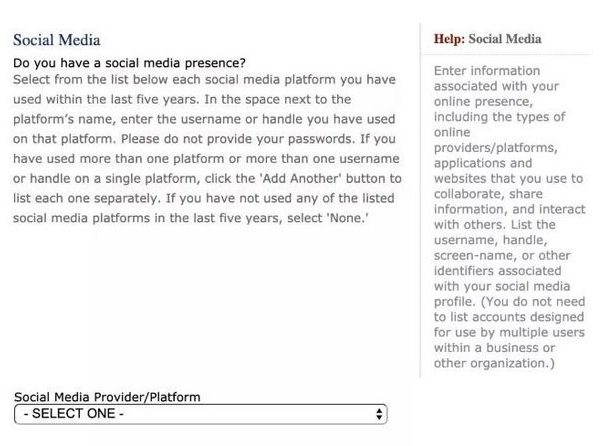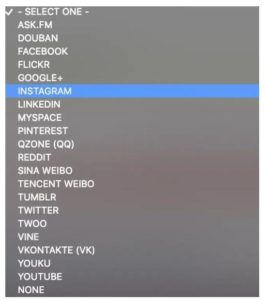Visa Denials: What to Do If Your Visa Is Denied
Thursday | August 1, 2019 | by Kasie C. Reyes

Expert Ambassador Kasie Reyes is the associate director of the International Student and Scholar Office at Old Dominion University in Virginia. In recent years, her school—like most others in the United States—has seen an increase in the number of visa denials being issued to international students.
Receiving a visa denial can be confusing, disappointing, and tricky to overturn. To help international students prevent—or cope with—this stressful situation, Kasie shares her best advice for handling visa denials.
This blog provides insights about why you might receive a visa denial, how to avoid one, and what to do if your visa is denied.
You have likely heard the horror stories. Maybe your friend’s cousin planned to go to Harvard, or your aunt’s neighbor was accepted to a prestigious degree program in California. Everything was going so well, and they had their bags packed. But suddenly, their visa was denied—for no reason!
Visa denials do happen. In fact, they are increasing in frequency. In previous years, you might have gotten a “request for evidence” (RFE) if the government needed more information to process your visa. But these days—with understaffed immigration offices and a growing backlog of applications—it is more likely that your visa application will simply be denied.
You do have options if you receive a visa denial; your dreams do not have to end. However, you will need to know what steps to take if you hope to move forward expediently.
But these cases are not as simple as they may appear. Here are some tips to help you navigate this process.
Prepare for Your Visa Interview
The best way to prevent visa denials is to do your research before you apply. You should know the specific requirements for your visa type, to ensure that you meet those requirements. You should also take the time to thoroughly prepare for your interview, so that you do not unintentionally say something that will result in a denial.
F-1 visas are for individuals planning to pursue a degree at a college or university in the United States. This is a non-immigrant visa, meaning that the individual is required to prove that they have every intention of returning to their home country when they complete their studies.
You will need to have a plan in place about what you will do when you finish your program of study. Your ability to prove close ties to your home country—through family, friends, community relations, and job opportunities—will be very useful.
In the meantime, if you hope to graduate from college, fall in love, get married, have three children, and settle in California—and you discuss that in your interview—your F-1 visa will definitely be denied.
At the interview, you will need to provide information about your education program. If you have received I-20 visa documents from several schools, you will need to decide which one you plan to attend. Then you will need to answer questions related to this decision, such as:
- What major or program have you chosen and why?
- What degree are you seeking?
- Where is your new school located?
- Why do you think this school is the best fit for your future goals?
Your actual interview will likely be very short—usually around five questions. But if your answers do not match the documentation you submit, or what you wrote on your DS-160, you will need a good explanation. Otherwise, you face the possibility of a visa denial.
Related Reading
Verify Your Information Before Risking Your Future
It is harsh to hear, but necessary to say: That advice from your “friend’s friend” is probably not accurate. Immigration forums are, by nature, some of the worst places to go for advice. If you wind up relying on outdated or incorrect information, you can jeopardize the outcome of your visa application—and maybe even your future.
However, there are legitimate sites for information. Study in the States is a website run by the U.S. Department of Homeland Security; it provides up-to-date information for international students. You should also touch base with your school’s International Student and Scholar Office. They can provide you with relevant information on visa regulations.
Finally, you should visit the website of the U.S. Embassy closest to the school you plan to attend; these websites offer great information, including excellent videos that explain the visa application process.
Check Your Social Media
The application for non-immigrant visas (DS-160) now asks applicants to list all of their social media accounts (going back five years). This is part of a new vetting initiative by the current administration.
If you have used an account for Twitter, Facebook, Instagram, or any other social media site in the five years preceding your application, you will need to disclose that information and provide your username, screen-name, or handle. You do not need to provide passwords, and adjudicators do not have the ability to change security settings.
So, what does this change mean?
Adjudicators are looking for information to verify your identity. However, they are also looking for any signs of extremist views, ties to terrorist organizations, or illegal activity. There is likely nothing in your social media that would trigger a denial.
That being said, it is always a good idea to professionalize your social media as you prepare to attend a college or university. Your peers and professors might be able to access your accounts, and you may be able to develop stronger social relationships and increase your on-campus opportunities if you have a well-maintained online presence. In the future, potential employers are also likely to look at your accounts.
This is the new section on social media on the DS-160:
What to Do If Your Visa Is Denied
If your visa is denied, it does not have to be the end of your journey. You can always reapply. In fact, some individuals are approved on their second (or even third!) application.
Again, make sure you do your research. Understanding the reason for your denial is the first step in having it overturned. You will receive a notice stating the reason you were denied. The State Department provides a list of ineligibilities, so you can learn more about your specific reason for denial.
There may be steps you need to take before you can reapply, if you are hoping to receive a different result. For example, make sure you provide any new documentation or additional evidence that is necessary to overcome the previous ineligibility. This could include financial records, property statements, or educational records, depending on the reason for denial.
Above all, never lie or misrepresent any information in your application, documentation, or interview. This will absolutely result in a visa denial. Plus, it could make you entirely ineligible to appeal or receive a visa to study in the United States.
However, if you stay informed and follow the correct procedures and processes, you might soon be on your way to obtaining a higher education in the U.S.
Next: Watch the Webinar
The views and opinions expressed in this article are those of the author(s) and do not necessarily reflect the official policy or position of World Education Services (WES).


